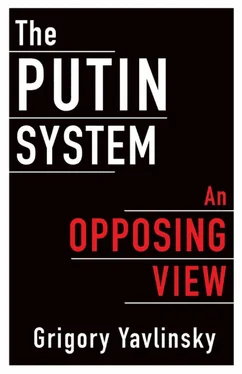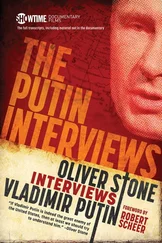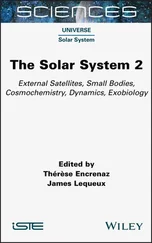But even such a scenario—an authoritarian incumbent losing the formal support of the majority of the country’s population—is possible only as a result of very powerful pressures by forces and circumstances both internal and external to the system. Under regular conditions, most of society, especially its politically inactive segments, tend to provide the requisite support for the powers that be and their mode of governing, even if their exposure to the propagandistic and administrative machinery is minimal.
This is how it works in similar cases around the world. Strictly speaking, the pivotal—even, one might say, totemic—status of the liberal competition-based model of political system, in the mind-set of global elites and in the relevant scholarly or quasi-scholarly writings, is more a consequence of the financial and technological might of the group of countries that use this model, such as the United States and the United Kingdom, than of its successful spread in the larger world. It is often lost on many that the majority of our planet’s population today lives in countries under authoritarian systems of rule, who differ among themselves in their ferocity in suppressing dissent, in their effectiveness, and in their political capabilities. Contrary to popular belief, such systems often do not assume the most extreme forms of bloody tyranny or practice total control over the life of their society. In more than a few cases, an authoritarian system does not preclude the population under its rule from enjoying a more or less unrestrained private life—as long as people are depoliticized. Even if this private life is quite removed from the ideals of efficiency and diversity, even if it is squeezed by an excess of arbitrary regulations and in some cases by ideological myths, nevertheless it is a relatively peaceful and stable life, with some space (however limited) for self-fulfillment in terms of personal aspirations and abilities.
It was precisely this kind of authoritarian system that took shape, in its basics, in the 1990s in Russia. The presidential election of 1996 still contained within it some chance, though not a very plausible chance, for the country to swerve onto a different trajectory, with the prospect of transitioning to a liberal, competition-based political system. In comparison, during the 1996–1999 period, the probability of moving to a different path at this particular turn of the spiral of Russia’s history decreased to a statistically negligible level. At the present stage, for such a change of direction to happen, Russia would need to go through a period of a very serious reconceptualization that could lay the groundwork for another U-turn in its history.
Meanwhile, we should also revisit certain key events of Russia’s development in the 1990s, which people tend to remember rarely and with which some are unfamiliar. First, the hyperinflation of 1992, which resulted from the liberalization of prices under total government ownership of economic property, created a supermonopolistic economic structure in Russia. This hyperinflation led to the expropriation of nearly 100 percent of individual savings, rapidly bringing the country’s population to total misery.
Second, in 1993, President Yeltsin used force to resolve the confrontation between himself and the legislature (the Supreme Soviet). Subsequently, this resulted in the basically forcible integration into the new political system of a significant number of nationalists and so-called leftists. This was followed by the adoption, without debate and by dubious means, of a constitution that was authoritarian in its essence and in its logic.
Next, the war of 1994 in Chechnya led to many thousands of deaths and destroyed whatever modicum of positive legacy still remained from the Soviet era on the level of social psychology—that is, the remaining widespread norms of interethnic acceptance, at least in terms of outward behavior. That war consolidated the militaristic element in the ruling nomenklatura . It also damaged Russia’s international reputation, while forcing many people in the outside world to ponder yet again the possibility of a military threat emanating from Moscow and to draw up plans for new dividing lines on the map of Europe.
The following year saw the launch of the fraudulent “privatization,” which essentially amounted to the transfer of the economically most important government properties to a tiny circle of individuals with access to the authorities, virtually free of charge, via the so-called loans-for-shares auctions. This process laid the basis for the lack of legitimacy of private property ownership in Russia, contributed to the fusion between government officeholders and private property owners, and annihilated all autonomous sources for the funding of civil society initiatives.
The 1996 election, as I have stated, was another crucial turning point. Boris Yeltsin, the candidate of the ruling circle in the 1996 presidential election, was aggressively promoted to everybody else in Russia as “our” candidate, along the lines of the dictum “Everyone who is not with us is against us.” After the election, through the distribution of plum portions of national economic wealth, free of charge, authorities continued to issue rewards to big business for their political service. This distribution of assets created an unbreakable bond between the country’s political leadership and its new bourgeoisie. This was also the beginning of the doling out of government positions in exchange for one’s personal services and as an expected source of the prospective officeholder’s personal enrichment. Further, authorities persistently made an effort to tie one’s patriotic feelings to the notion of being in the personal service of the chief of state (something that was noted by a classic Russian author of the nineteenth century, Mikhail Saltykov-Shchedrin, as the habit of confusing two notions: “Fatherland” and “Your Excellency”).
It is also very important to note the emergence of a panic in the Kremlin about the possible fracturing of the elites into two competing groups within the dominant circle; this fear prompted the authorities to put a stranglehold on the political alternative that was coalescing at the time around Moscow mayor Yuri Luzhkov and former prime minister Yevgeny Primakov. The final stage in this process was the establishment of an institutionalized “successor to the president,” when outgoing president Boris Yeltsin publicly announced Vladimir Putin as the sole candidate put forward by the ruling group to succeed him and provided him with all the resources and opportunities of incumbency that were controlled by that group.
As a matter of fact, this final move signaled the definitive installation in Russia of the second of the key features of an authoritarian system: the transfer of power by means of personalized succession, without a public competition for that role in any shape or form. In other words, this feature eliminates the ruling group’s uncertainty about not only the electoral process but also the process of succession caused by individual biological reasons, such as the death or infirmity of the ruler. Let us note that even though this succession was initiated by the ruling circle and driven by the personal considerations of its members (some of whom later found that they had miscalculated), it happened with at least a tacit approval of society at large. The presence of electoral institutions, the freedom of political organizing and speech, did not preclude society as a whole, and especially its political class, from taking it as a given that, starting from the late 1990s, the ruling circle did not consider it necessary and would not allow its power and the personal fate of its members to depend upon the actual results of an uncontrolled popular vote at the general elections.
Читать дальше












